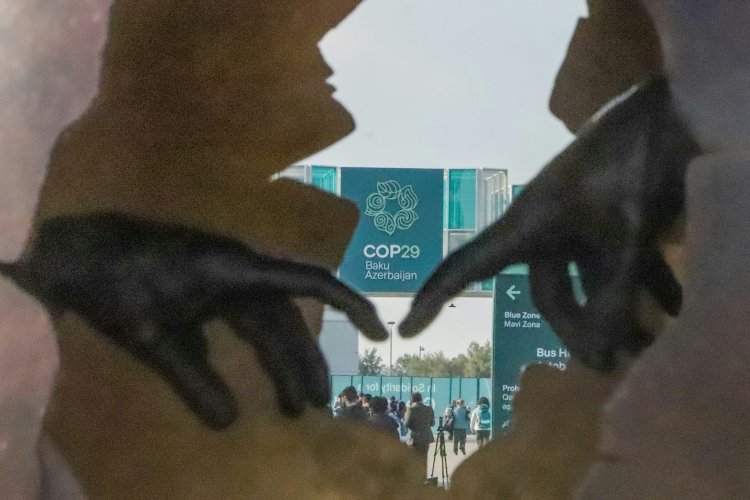China’s classification as a developing country has sparked intense debate in international climate negotiations at COP29 summit in Baku. As the world’s largest greenhouse gas emitter, a leader in clean-tech manufacturing, and a major financier of renewable energy projects globally, China occupies a unique position in climate talks. However, its continued self-identification as a developing country raises critical questions about fairness, accountability, and its role in providing climate finance.
The implications of China’s status are profound, especially in determining its obligations under international agreements and its access to climate financing mechanisms. Should China relinquish its developing country status to shoulder greater obligations in combating climate change? The answer lies in balancing historical inequities, contemporary realities, and future imperatives.
READ | Climate change: Will Trump’s policies derail global progress
China’s economic and emissions profile
Over the past few decades, China has experienced rapid economic growth, emerging as the world’s second-largest economy and a global export powerhouse. It has also become the largest emitter of greenhouse gases, accounting for approximately one-third of global carbon dioxide emissions. Despite this, China’s per capita emissions remain lower than those of many developed nations. The country’s substantial investments in renewable energy and clean technologies have positioned it as a leader in the global green transition.
However, the question of responsibility cannot be divorced from historical context. China’s rise as an economic power contrasts starkly with its internal challenges: significant income inequality, rural poverty, and the need for continued development. These dual realities make its self-classification as a developing country a contentious but nuanced issue.
Developed vs developing country status
The distinction between developed and developing countries is central to climate agreements, influencing obligations and access to financial resources. Historically, developed nations have been expected to provide financial support to developing countries to aid in climate mitigation and adaptation. China’s self-identification as a developing country allows it to receive such support, despite its significant economic and environmental footprint.
At COP29, developed countries, including the United States and European Union, advocated a reassessment of the developed-developing dichotomy established in 1992. They argue that nations with substantial economic growth and high emissions, like China, should assume greater responsibility in climate finance and emission reductions. This perspective suggests that wealthier developing countries should contribute to climate finance, rather than solely receiving support.
Conversely, China and other large developing nations contend that developed countries are attempting to evade their historical responsibilities for climate change. They emphasise the principle of “common but differentiated responsibilities,” asserting that developed nations should lead in providing financial and technological support to poorer countries.
China’s contributions to climate finance
China has been a significant provider of climate finance to other developing countries, contributing an average of $4.5 billion annually between 2013 and 2022. These contributions, amounting to approximately 6% of total global climate finance during that period, have been channelled through bilateral public funds, multilateral public funds, export credits, and mobilised private financing. Most of this funding is directed towards energy, transportation, and water projects in Asia and Africa. However, only 3% of China’s climate financing takes the form of grants, far below the 39% grant level provided by developed countries.
At COP29, this dual role as both recipient and provider of climate finance added to the complexity of China’s position. While China called for developed countries to fulfil their unmet commitments, it also highlighted its contributions through the Belt and Road Initiative and South-South Cooperation mechanisms. This duality underscores China’s unique status as a bridge between developed and developing nations.
The debate over China’s classification has significant implications for global climate policy. Reclassifying China as a developed country could lead to increased financial contributions and more stringent emission reduction commitments from Beijing. However, such a move could also strain international relations and complicate consensus-building in climate negotiations.
Balancing equity and responsibility remains a central challenge. While China’s economic rise and environmental impact suggest a need for greater accountability, its per capita emissions and development status indicate that it still faces significant challenges. A nuanced approach that considers both historical emissions and current capabilities may be essential for effective and fair climate action.
Towards a nuanced framework
Rather than forcing binary classifications, international frameworks could adopt a more flexible approach. Sector-specific obligations, where wealthier developing nations like China take on greater commitments in renewable energy exports and technology transfer, could provide a balanced solution. Similarly, hybrid financing models, such as blended finance mechanisms that combine public and private funding, could enable China to meet its domestic and international climate goals.
Enhanced reporting standards could also build trust and accountability. By improving transparency in climate finance contributions, China and other nations could demonstrate their commitment to global climate objectives while avoiding the zero-sum dynamics that often hinder negotiations.
China’s dual identity as a developing country with developed-country responsibilities reflects the complexities of modern geopolitics. While its economic and environmental impact necessitates greater accountability, reclassifying China as a developed nation could disrupt fragile international cooperation. Instead, creating a tailored framework that acknowledges China’s unique position and encourages equitable contributions may offer a path forward.
As the world grapples with the escalating climate crisis, redefining the roles and responsibilities of major economies like China will be crucial. A collaborative, innovative approach to resolving these disputes is not only essential for global climate progress but also for preserving the integrity of international agreements. The stakes are too high for anything less.

